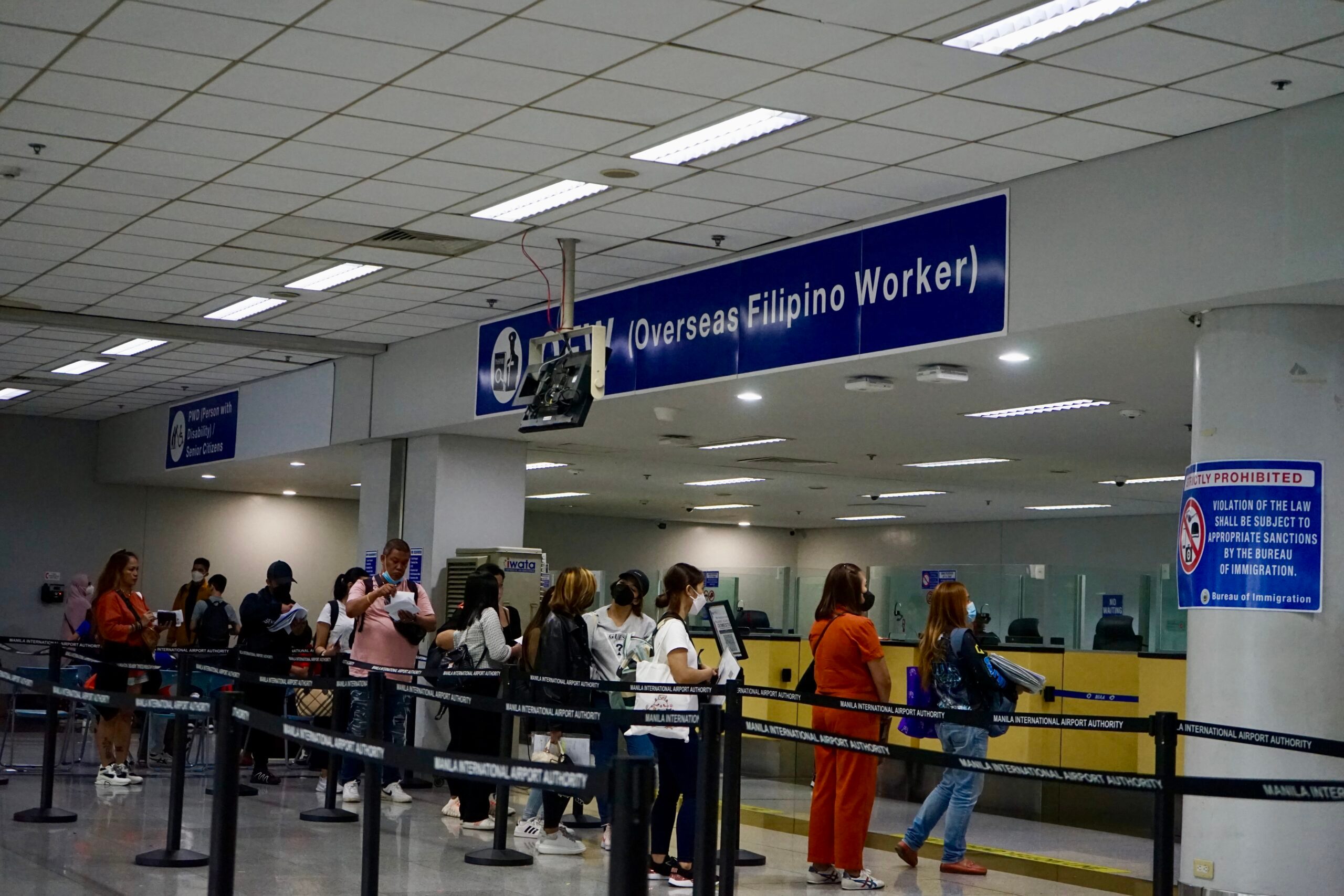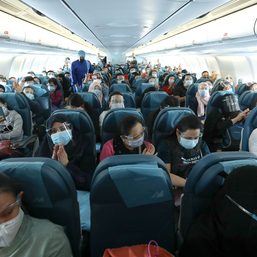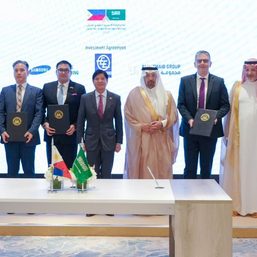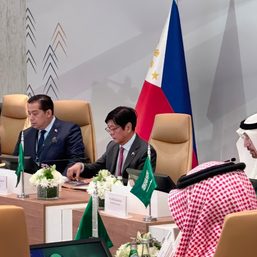SUMMARY
This is AI generated summarization, which may have errors. For context, always refer to the full article.

MANILA, Philippines – After almost a decade of waiting, overseas Filipino workers (OFWs) who lost their jobs due to the closure of their construction companies in Saudi Arabia have begun receiving their labor claims, the Philippine government announced on Tuesday, February 6.
“Nais ko lang balitaan ang ating mga OFW na galing sa Saudi na patuloy na ang pagbayad ng insurance ng Saudi Arabia sa mga empleyado ng mga kumpanyang nabangkarote na nag-file ng claim sa insurance,” President Ferdinand Marcos Jr. said on a video posted on his Facebook page on Tuesday, February 6.
(I want to update our OFWs who came from Saudi that the kingdom’s insurance payments are ongoing for the employees of the companies that went bankrupt, who also filed insurance claims.)
Marcos said that the Overseas Filipino Bank (OFBank) and Land Bank of the Philippines have processed at least 1,104 checks from the Saudi-based Alinma Bank.
He added that P868 million in indemnity checks have been cleared by Alinma Bank through Land Bank and OFBank. Of the 1,104, some 843 checks have already been cashed out.
“Patuloy ang pangako ng Crown Prince ng Saudi Arabia pangako sa atin, na ibabayad nila iyong insurance claim, kaya’t magandang balita ito para sa ating mga OFW sa Saudi,” said Marcos. (Saudi Arabia’s Crown Prince is living up to his promise to us to pay the insurance claims, which is why this is good news for our OFWs from Saudi.)
Around 10,000 to 14,000 OFWs who worked for construction companies in Saudi Arabia have been waiting for their labor claims since the mid-2010s. Some of the claimants have already died, but their next of kin still await the release.
Saudi Crown Prince Mohammed bin Salman promised Marcos in November 2022 that the kingdom would pay the long-awaited salaries on the sidelines of the Asia-Pacific Economic Cooperations Summit in Bangkok.
In December, the Department of Migrant Workers (DMW) announced that OFWs had begun receiving checks, but it was short to announce the official start of payouts since it had yet to verify the release of money.
On Tuesday evening, the DMW announced that the payouts had begun some time near the end of January.
9,000 to go
With some of the individual claims worth hundreds of thousands of pesos, the total amount expected from Saudi Arabia is 2 billion Riyals, or around P30 billion.
DMW officer-in-charge Hans Cacdac said in a media briefing on Tuesday that there were 10,554 OFWs with iqamas, or residence permits, coming from a DMW list that were sent to the Saudi labor ministry.
“We are still in constant coordination with the Saudi side,” Cacdac said, responding to a question from the media on the status of the 9,000 still waiting for checks.
Apart from a planned visit to Saudi Arabia by the end of February, Cacdac said he would also take the opportunity to meet with the Saudi delegation in a multilateral conference he’s set to attend in Dubai in the coming weekend.
There are also some OFWs who are still trying to apply for inclusion in the list, Cacdac said. But he expressed confidence in the Saudi labor justice system, saying that entitlements and benefits of workers will “always be delivered.” – Rappler.com
Add a comment
How does this make you feel?








There are no comments yet. Add your comment to start the conversation.